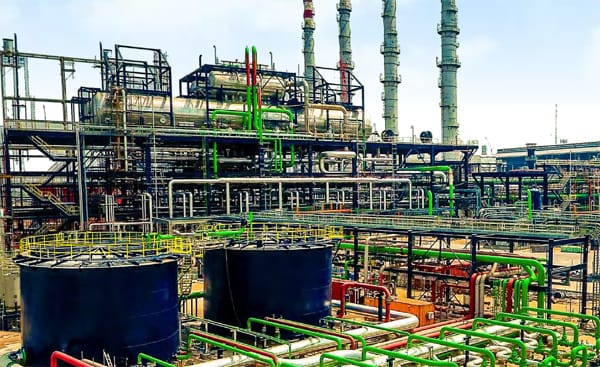Business
Pinnacle Oil Reveals Deal with Dangote Refinery on Fuel Distribution

Pinnacle Oil shares details about its new partnership with Dangote Refinery for fuel distribution, aiming to boost Nigeria’s energy sector. Read more on the terms and benefits of the agreement.
Amid recent disputes concerning the distribution and importation of petroleum products, Pinnacle Oil & Gas Limited has revealed details about its collaboration with Dangote Refinery. This disclosure provides insight into their joint operations at Pinnacle’s distribution terminal in the Lekki Free Zone.
On Thursday in Lagos, Pinnacle Oil’s Managing Director, Mr. Robert Dickerman, explained that the company has made substantial investments to create a state-of-the-art terminal in Lekki. This facility is designed to greatly improve the efficiency of petroleum product distribution across Nigeria and operates under a 13-year agreement with the Dangote Group. “Our goal with building this terminal was to enhance national distribution efficiency in collaboration with the Dangote Group,” he stated while addressing recent claims suggesting that its operations were meant to undermine the refinery.
Earlier this week, Dangote Refinery accused Pinnacle Oil of engaging in the import and distribution of substandard petroleum products. They claimed that this action undermines locally refined products.
In response, Dickerman highlighted Pinnacle’s dedication to refining distribution methods: “To boost the efficiency of our distribution system, we suggested and funded pipeline infrastructure for transporting petroleum products from the Dangote Refinery. Pipeline transfers are significantly more cost-effective than shipping or trucking these products nationwide.”
READ ALSO: Dangote’s Push for Monopoly a Recipe for Disaster Marketers Tell Court
When we presented the project to Dangote, they fully supported it and entered into a 13-year interconnection agreement with us. Furthermore, Dangote assisted in obtaining regulatory approval by sending two Letters of No Objection to the regulator on our behalf, enabling our project to move forward.
Promoting a competitive petroleum market, Dickerman stated, “Pinnacle firmly believes—as do informed economists and market analysts—that the best approach to Nigeria’s energy security and pricing is a market-driven strategy that supports all supply sources, whether from local refineries, imports, or other avenues. Suppliers should meet market quality and safety standards while consumers enjoy the most competitive prices possible.”
Before Pinnacle’s terminal was established, imported fuel shipments experienced expensive delays and had to be transferred to smaller vessels because of draft limitations at Nigerian ports. This practice significantly increased the costs associated with petroleum distribution over time.
Dickerman emphasized that since the Pinnacle terminal commenced operations in 2021, it has facilitated complete cargo offloading in less than 40 hours without requiring extra ship-to-ship transfers or facing any delays.
He also recommended, “The Dangote Refinery should consider adopting this system to maintain market-level prices, which would help the entire industry avoid supply disruptions and price spikes. It is unnecessary and undesirable to recreate a distribution network where every truck has to load from a single location for the whole country.”
